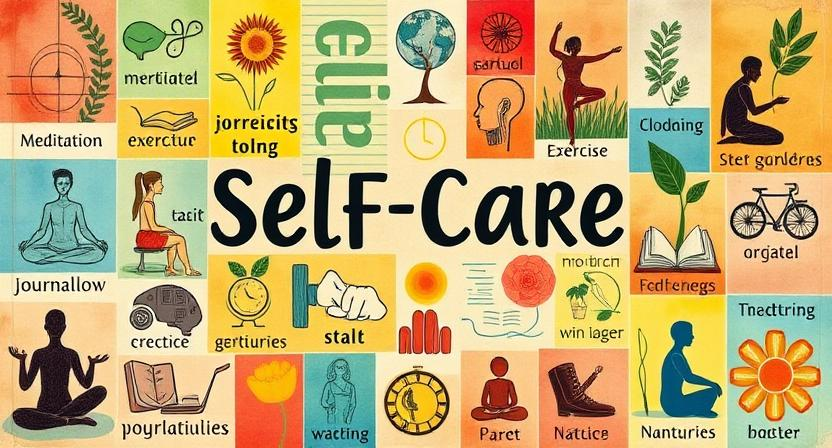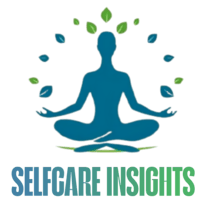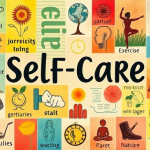
10 Simple Self-Care Practices to Transform Your Mental Health in 2024
Self-Care Practice: Establishing a Daily Routine

Establishing a daily routine can be a powerful tool in promoting overall well-being and productivity. By setting a consistent schedule for tasks such as waking up, eating meals, exercising, and winding down for bed, individuals can create a sense of structure and stability in their lives. This can help alleviate feelings of overwhelm and improve time management skills, leading to a more balanced and fulfilling lifestyle.
Moreover, a daily routine can also provide a sense of accomplishment and motivation as tasks are completed throughout the day. Knowing what to expect and having a plan in place can reduce decision fatigue and increase efficiency in daily activities. By incorporating self-care practices such as mindfulness meditation, exercise, and healthy meals into a daily routine, individuals can prioritize their well-being and ensure that they are taking care of both their physical and mental health on a consistent basis.
Self-Care Practice: Prioritizing Sleep
Lack of sufficient sleep can have a profound impact on our overall well-being. Prioritizing sleep is crucial for our physical, mental, and emotional health. When we make sleep a priority, we allow our bodies to rest and rejuvenate, enhancing our cognitive function, mood regulation, and immune system.
Establishing a consistent sleep routine can help regulate our internal body clock and improve the quality of our sleep. Going to bed and waking up at the same time each day can signal to our body when it’s time to sleep and when it’s time to wake up, promoting a more restful and restorative sleep experience. By prioritizing sleep and ensuring we get the recommended amount each night, we can better manage stress, improve our concentration, and boost our overall health and well-being.
Self-Care Practice: Engaging in Physical Activity
Engaging in physical activity is a fundamental aspect of self-care that offers a myriad of benefits for both the body and the mind. Regular exercise not only helps to improve physical health by enhancing cardiovascular fitness and muscular strength but also plays a crucial role in promoting mental well-being. Whether it’s going for a brisk walk, practicing yoga, or hitting the gym for a workout session, finding an activity that you enjoy and incorporating it into your daily routine can boost your overall sense of wellness.
Physical activity has been shown to reduce stress, anxiety, and symptoms of depression, making it an essential tool in managing and preventing mental health challenges. Furthermore, exercise releases endorphins – often referred to as “feel-good” hormones – which can elevate mood and provide a natural energy boost. By prioritizing regular physical activity as part of your self-care routine, you not only invest in your long-term health but also nurture a positive relationship with your body and mind.
Self-Care Practice: Nourishing Your Body with Healthy Foods
Eating a balanced and nutritious diet plays a crucial role in maintaining overall health and well-being. Incorporating a variety of fruits, vegetables, whole grains, lean proteins, and healthy fats into your meals can provide essential vitamins, minerals, and antioxidants that support your body’s functions. Making mindful choices when it comes to food can help you feel more energized, improve your mood, and boost your immunity.
Processed foods, sugary snacks, and high-fat foods may offer temporary satisfaction but can leave you feeling sluggish and bloated in the long run. Opting for whole, unprocessed foods not only nourishes your body but also supports your digestive system and promotes a healthy weight. Staying hydrated by drinking an adequate amount of water throughout the day is equally important in maintaining proper bodily functions and aiding in digestion. Remember, nourishing your body with healthy foods is a form of self-care that promotes physical and mental well-being.
Self-Care Practice: Mindfulness Meditation

Mindfulness meditation involves directing your attention to the present moment without judgment. It is a practice that can help calm the mind, reduce stress, and increase self-awareness. By focusing on your breathing or the sensations in your body, you can cultivate a sense of peace and presence in the now.
Research has shown that regular mindfulness meditation can have numerous benefits for mental and physical well-being. It can improve emotional regulation, enhance concentration, and even boost immune function. Taking just a few minutes each day to practice mindfulness meditation can have a profound impact on your overall sense of well-being.
Self-Care Practice: Setting Boundaries
Setting boundaries is an essential aspect of self-care that enables individuals to safeguard their well-being and protect their mental and emotional health. By establishing healthy boundaries, you communicate your limits and expectations to others, ensuring that your needs are respected and your values upheld. Boundaries help create a sense of balance in relationships and prevent feelings of resentment or burnout that may arise from overextending yourself.
When setting boundaries, it is important to be clear, assertive, and consistent in your communication. Clearly articulating your boundaries helps others understand your needs and limitations, fostering a sense of mutual respect and understanding. Remember that setting boundaries is not about being selfish or unwelcoming, but rather about prioritizing your self-care and demonstrating self-respect. By maintaining healthy boundaries, you cultivate a sense of empowerment and agency in your interactions with others, promoting positive and fulfilling relationships.
Self-Care Practice: Practicing Gratitude
Gratitude is a powerful tool that can significantly impact our overall well-being. When we take the time to reflect on what we are thankful for, it shifts our focus from what is lacking in our lives to what we already have. This practice can help us cultivate a sense of contentment and appreciation for the present moment, promoting a positive outlook on life.
Expressing gratitude can also strengthen our relationships with others. By acknowledging and appreciating the kindness and support we receive from friends, family, and colleagues, we nurture a sense of connection and belonging. This act of gratitude not only benefits our own mental and emotional health but also deepens the bonds we share with those around us, creating a more supportive and harmonious social environment.
Self-Care Practice: Connecting with Others
Engaging with others is a vital component of self-care. Human beings thrive on connection and social interaction. Whether it’s spending quality time with friends, family, or even making new acquaintances, these interactions can have a positive impact on our well-being. Sharing experiences, laughter, and even challenges with others can provide a sense of belonging and support that is essential for maintaining good mental and emotional health.
Connecting with others also allows for the exchange of ideas, perspectives, and emotions. It can help broaden our horizons, challenge our beliefs, and foster personal growth. By engaging in meaningful conversations and building relationships with those around us, we not only cultivate a sense of community but also enhance our overall sense of fulfillment and happiness. Take the time to prioritize social connections in your self-care routine, as they play a significant role in promoting a sense of connection and belonging in our lives.
Self-Care Practice: Spending Time in Nature

Spending time in nature can have a profound impact on our overall well-being. Immersing ourselves in the sights, sounds, and smells of the natural world can help us feel more grounded and connected to something greater than ourselves. The tranquility of a forest, the vastness of the ocean, or the beauty of a mountain range can provide a sense of calm and perspective that is often hard to find in our fast-paced lives.
When we spend time in nature, we have the opportunity to unplug from the constant stimulation of technology and simply be present in the moment. Whether it’s going for a hike in the mountains, lounging by the beach, or simply sitting in a park, being in nature allows us to slow down, breathe deeply, and appreciate the beauty that surrounds us. Research has shown that spending time in nature can reduce stress, improve mood, and enhance overall feelings of well-being.
• Spending time in nature can help us feel more grounded and connected
• Immersing ourselves in the natural world provides a sense of calm and perspective
• Nature allows us to unplug from technology and be present in the moment
• Research has shown that being in nature can reduce stress, improve mood, and enhance overall well-being.
Self-Care Practice: Seeking Professional Help When Needed
Seeking professional help is a crucial aspect of self-care, especially when facing challenges that feel overwhelming or difficult to manage alone. It’s important to recognize that reaching out for support is a sign of strength, not weakness. Therapists, counselors, psychologists, or other mental health professionals are trained to provide guidance, support, and tools to help individuals navigate through their struggles and develop coping strategies that promote well-being.
Meeting with a mental health professional can offer a safe space to explore your thoughts and emotions, gain insight into patterns of behavior, and work towards creating positive changes in your life. Whether you’re dealing with stress, anxiety, depression, trauma, relationship issues, or any other mental health concern, seeking professional help can provide you with the resources and support needed to improve your mental and emotional health. Remember, reaching out for help is an important step towards prioritizing your well-being and creating a healthier and happier life.
Self-Care Practice: Limiting Screen Time
In today’s digital age, it’s all too easy to fall into the trap of spending excessive amounts of time glued to our screens. Whether it’s mindlessly scrolling through social media, binge-watching shows, or working long hours on our devices, the constant exposure to screens can take a toll on our well-being. By limiting screen time, we can create a healthier balance in our lives and prioritize activities that nourish our minds and bodies.
Setting boundaries around screen usage can help us reclaim our time and focus on more meaningful pursuits. By establishing designated screen-free periods during the day, such as during meals or before bedtime, we can reduce the negative effects of excessive screen time on our sleep quality, mental health, and overall productivity. Instead of mindlessly reaching for our devices out of habit, we can use this time to engage in activities that promote relaxation, creativity, and human connection.
Self-Care Practice: Journaling
Journaling is a powerful self-care practice that allows individuals to express their thoughts and emotions freely. The act of putting pen to paper can be cathartic and therapeutic, providing a safe space to unload burdens and reflect on inner experiences. By jotting down feelings, worries, or even moments of gratitude, journaling can help cultivate self-awareness and foster emotional well-being.
Moreover, maintaining a journal can aid in clarifying thoughts and making sense of complex emotions. Through the act of writing, individuals can gain insights into their patterns of thinking and behavior, which can lead to personal growth and self-discovery. Journaling also serves as a form of self-expression, allowing individuals to explore their creativity and unlock their inner voice. By incorporating journaling into a daily routine, individuals can cultivate a deeper connection with themselves and enhance their overall sense of well-being.
Self-Care Practice: Engaging in Creative Activities

Engaging in creative activities is a powerful way to nurture your well-being and foster self-expression. Whether you enjoy painting, writing, crafting, or any other form of creative outlet, taking the time to engage in these activities can be a refreshing escape from the demands of everyday life. Creating art allows you to tap into your inner emotions and thoughts, providing a cathartic release that can help reduce stress and anxiety.
Through engaging in creative activities, you give yourself the freedom to explore your imagination and connect with your inner self on a deeper level. This process of self-discovery can lead to a greater sense of fulfillment and purpose in your life. So, whether you are a seasoned artist or a novice beginner, make time in your self-care routine to unleash your creativity and experience the therapeutic benefits it can bring to your overall well-being.
Self-Care Practice: Taking Regular Breaks
In our fast-paced world where productivity is often prioritized over well-being, it’s crucial to remember the importance of taking regular breaks throughout the day. Whether you’re working from home, in an office, or taking care of your family, incorporating short breaks into your routine can have a significant impact on your overall health and happiness. It’s not about the quantity of breaks you take, but the quality of the break you allow yourself to have.
Taking breaks can help prevent burnout, improve concentration, and enhance creativity. By stepping away from your tasks momentarily, you give your mind a chance to rest and recharge, leading to better focus and increased productivity when you return to your work. It’s essential to listen to your body and mind’s signals and take breaks when you start to feel overwhelmed or fatigued. Remember, self-care isn’t selfish – it’s a necessary component of maintaining a balanced and fulfilling life.
Self-Care Practice: Learning to Say No
Learning to say no is an essential aspect of self-care. It involves setting boundaries and prioritizing your own well-being. Saying no to things that drain your energy or cause you stress is a powerful way to protect your mental and emotional health. By learning to decline commitments that don’t align with your values or goals, you make room for activities that bring you joy and fulfillment.
When you say no, you are affirming your own needs and limits, which is crucial for maintaining a healthy balance in your life. It’s important to remember that saying no is not selfish; it’s an act of self-respect. By being selective about how you spend your time and energy, you create space for activities that nurture your mind, body, and spirit. Learning to say no is a valuable skill that can empower you to live a more authentic and fulfilling life.
Self-Care Practice: Practicing Deep Breathing Exercises
Deep breathing exercises are a simple yet powerful technique that can help calm the mind and relax the body. By taking slow, deep breaths in through the nose and out through the mouth, you can activate the body’s relaxation response, reducing stress and anxiety levels. This practice can be done anytime and anywhere, making it a convenient tool to incorporate into your daily self-care routine.
Engaging in deep breathing exercises not only brings physical benefits such as lowering blood pressure and promoting better oxygen flow, but it also helps improve mental clarity and focus. Taking a few moments to focus on your breath can reset your mind and bring a sense of peace and tranquility. Whether you’re feeling overwhelmed during a busy day or struggling to fall asleep at night, deep breathing exercises can provide a grounding and centering effect, helping you feel more balanced and in control of your emotions.
Self-Care Practice: Setting Realistic Goals

Setting realistic goals is a fundamental aspect of self-care that can significantly impact our well-being. When we set attainable objectives for ourselves, we are more likely to experience a sense of accomplishment and fulfillment. It is important to break down larger goals into smaller, manageable tasks to prevent feeling overwhelmed and maintain motivation throughout the process.
By setting realistic goals, we are able to create a roadmap for success and track our progress effectively. This practice not only helps us stay focused and organized but also empowers us to take control of our lives and work towards continuous self-improvement. Remember, setting goals that are challenging yet achievable is key to nurturing a positive mindset and fostering personal growth.
Self-Care Practice: Cultivating a Positive Mindset
Cultivating a positive mindset involves focusing on constructive thoughts and beliefs that empower you. By shifting your perspective towards optimism, you can approach challenges with a sense of resilience and motivation. Embracing positivity can help you navigate through difficulties more effectively and promote emotional well-being in your daily life.
Practicing gratitude and affirmations are effective ways to foster a positive mindset. Acknowledging the things you are thankful for and speaking positive affirmations can reframe your thoughts towards a more optimistic outlook. Additionally, surrounding yourself with uplifting and supportive individuals can also contribute to maintaining a positive mindset.
Self-Care Practice: Engaging in Relaxation Techniques
Engaging in relaxation techniques is a vital aspect of self-care that can help promote overall well-being and reduce stress levels. By incorporating practices such as deep breathing exercises, progressive muscle relaxation, or guided imagery into your daily routine, you can create a sense of calm and inner peace. These techniques can be particularly beneficial during times of heightened anxiety or overwhelming emotions, allowing you to find moments of tranquility amidst the chaos of everyday life.
Taking the time to prioritize relaxation not only benefits your mental health but also has physical benefits, such as lowering blood pressure, improving sleep quality, and boosting immune function. Whether you carve out a few minutes each day to practice relaxation techniques or set aside a longer period for a full relaxation session, incorporating these practices into your self-care routine can have a profound impact on your overall health and well-being. It is important to listen to your body and mind, and give yourself the gift of relaxation to recharge and rejuvenate.
Self-Care Practice: Embracing Self-Compassion
In the realm of self-care practices, embracing self-compassion stands out as a powerful tool for nurturing one’s well-being. It involves showing oneself kindness, understanding, and forgiveness, especially in times of struggle or failure. Embracing self-compassion means treating oneself as a friend, offering comfort and support when faced with challenges or setbacks. By cultivating a compassionate attitude towards oneself, individuals can foster resilience, enhance self-esteem, and promote overall mental and emotional health.
Rather than engaging in self-criticism or harsh judgment, embracing self-compassion encourages individuals to acknowledge their imperfections and mistakes with a sense of warmth and acceptance. This practice involves recognizing that everyone is human and bound to make errors, emphasizing the importance of self-kindness and understanding. By extending compassion towards oneself, individuals can cultivate a greater sense of inner peace, self-acceptance, and emotional well-being. Embracing self-compassion is not about excusing oneself from accountability but rather about approaching oneself with empathy and grace.











